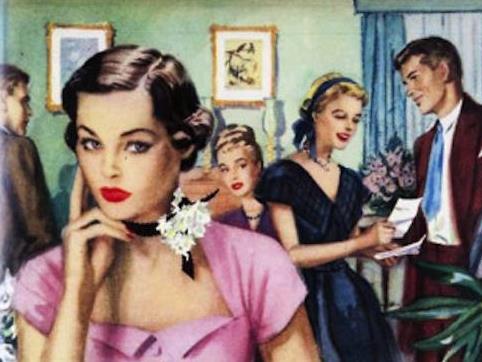Networking can be difficult for artists because many of us are introverted and we don’t really like promoting ourselves. We’re awkward at it. We don’t like being a tall poppy, we don’t blow our own horn, and we believe that our art should speak for itself. But the reality is – we’re fascinating and interesting, our art is special and what we do is unique. People are curious about us and our work.
Networking is your opportunity to share your passion and process as well as your challenges. Don’t think about networking as ‘sales’ or ‘advertising’. We’re not good at it. But what we are good at is having conversations about our process and our art.
It’s vital to push yourself out of your comfort zone and engage in some networking, even though it can feel awkward and uncomfortable to begin with.
When someone says, “What do you do?” a strange flood of emotion comes over us. We freeze. We stutter. A thousand ideas and thoughts flood our brain. As artists we’re usually involved in dozens of projects and the answer to the simple question “what do you do?” is often several paragraphs about all the things that we’re involved with. It’s not a simple answer like ‘Lawyer’, ‘Accountant’ or ‘Justice of the Peace’ as the label ‘Artist’ doesn’t even begin to cover all the things we do. We can face a paralysis because we do too many things.
As artists have so many different things on the go so it’s difficult for us to pick just one thing to talk about but that’s exactly what we need to do. The KISS principle should be applied. KISS is an acronym for “Keep it simple stupid” or “Keep it simple and straightforward” depending on who you ask. It was originally used as a design principle, but it’s equally applicable here.
The typical awkward networking experience is for artists to scatter out all sort of gems. The problem is, it’s just too confusing for the person listening. They couldn’t possibly remember or make sense of all the extraordinary things that we’re doing and saying, so help them and just pick one.
When that simple question comes up “What do you do?” try saying, “Well, I’m an artist so I’m actually doing a lot of things but the thing that’s fascinating me/challenging me/in development right now is…” and pick one thing.
Just talk about that one thing and then leave it. Less is more. We are very complex people as artists but you need to make it simple for the person you’re talking to. If they’re interested in that one thing they’ll ask you for more information and you can go into greater detail, but just picking one thing focuses the conversation and makes it easier for you to share rather than sell.
It’s also vital to remember that conversations aren’t lectures, they’re a two way street. Everyone remembers conversations in which all sorts of information is forthcoming from the other person, but the complete lack of interest in the recipient is astounding. It doesn’t leave a good impression. Instead, show some curiosity about them as well. What is their name? What are they interested in? It will not only help the conversation to flow more smoothly, it will also help you to work out which aspect of your creative practice to discuss.





